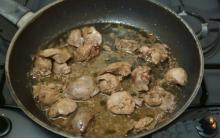The personality of the Emperor of France excites the minds of historians and writers of all times. Many scientists and writers have tried to uncover the mystery of the evil genius who killed millions of human lives.
Leo Tolstoy acted as an objective critic, the image and characterization of Napoleon in the novel "War and Peace" is comprehensively highlighted, not warned.
What does the emperor of France look like
The thin face of Napoleon in 1805 near Austerlitz testified to his busy schedule, fatigue, and valiant ardor. In 1812, the emperor of France looks different: a round belly indicates a passion for fatty foods. A chubby neck protrudes from the collar of a blue uniform, and the bulges of thick thighs are well traced through the tight-fitting fabric of white leggings.
A trained military posture allowed Bonaparte to look majestic until his last days. He was distinguished by his small stature, stocky figure and involuntarily protruding belly, he constantly wore jackboots - life passed on horseback. The man became famous for his well-groomed dandy with beautiful white hands, loved perfume, his body was constantly enveloped in the thick aroma of cologne.
Napoleon started a military campaign against Russia at the age of forty. Dexterity and movement were less agile than in youth, but the step remained firm and quick. The emperor's voice sounded loud, he tried to pronounce each letter clearly, especially the last syllable in words was beautifully pronounced.
How the heroes of the novel "War and Peace" characterize Napoleon
The owner of the Petersburg Salon Anna Scherrer repeats the rumors spread from Prussia that Bonaparte is invincible, Europe will not be able to stop his army. It is only 1805, some of the guests invited to the party speak with admiration about the activities of the new French government, its ambitious leader.
At the beginning of the novel, Andrei Bolkonsky considers the military leader promising. At the aforementioned evening, the young prince recalls the noble deeds of the commander that command respect: visiting hospitals, communicating with plague-infected soldiers.
After the Battle of Borodino, when the Russian officer had to die among the many killed soldiers, he heard Napoleon above him. He spoke about the picture of death unfolding before his eyes, admiring, with delight, with inspiration. Prince Andrew realized that he was hearing the words of a sick man, possessed by the suffering of others, vile and down-to-earth with unhealthy instincts.
Similarly, Pierre Bezukhov became disillusioned with the image of the French military leader. The young count emphasized the state professionalism of a figure who managed to separate the abuses of the revolution, who accepted the equality of citizens as the basis of a new political government. Pierre especially diligently tried to explain to the Russian nobility the positive meaning of freedom of speech, which originated in young France.
On the ashes of Moscow, Bezukhov changed his mind to the opposite. Under the theatrical grandeur of Napoleon's soul, Pierre saw the scale of the lawlessness perpetrated by the emperor alone. The consequence of the actions of the person in power was inhuman cruelty. Mass lawlessness was the result of greed and insignificance.
Nikolai Rostov, due to his youth and directness, considered Napoleon a criminal, and as an emotionally mature representative of youth, he hated the commander of the enemy army with all the strength of his youthful soul.
The Russian statesman Count Rostopchin compares the activities of the evil genius with the pirate traditions that took place on the ships they seized.
Napoleon's personality traits
The future conqueror of Europe had Italian roots, could, like most representatives of this nation, spontaneously change facial expressions. But contemporaries argued that the expression of complacency and happiness was often present on the little man's face, especially in moments of battles.
The author repeatedly mentions narcissism, self-adoration of this character, selfishness reaches the level of insanity. A blatant lie escapes his lips, accentuated by a sincere expression in his eyes. War for him is a noble craft, he does not notice that behind these words there is a red picture of millions of ruined lives, rivers of blood flow from the battlefields.
The mass murder of peoples turns into a habit, a passionate addiction. Napoleon himself calls war his craft. A military career has become his life goal since his youth. Having reached power, the emperor appreciates luxury, organizes a magnificent courtyard, and demands honor. His orders are carried out unquestioningly, he himself, according to Tolstoy, began to believe in the correctness of his thoughts, as the only correct one.
The Emperor is under the delusion that his beliefs are infallible, ideal and perfect in their truth. Tolstoy does not deny that Bonaparte's experience of waging war is significant, but the character is not an educated person, but on the contrary, is a limited person in many respects.
Article menu:
Often, readers of Tolstoy's novel War and Peace perceive the historical figures depicted in the novel as a documentary image, forgetting that Tolstoy's work is primarily a literary hoax, which means that the image of any characters, including historical ones, is not devoid of author's, artistic invention or subjective opinion.
Sometimes authors specifically idealize or depict a character from the negative side in order to recreate a certain mood of a piece of text or a whole work. The image of Napoleon in Tolstoy's novel also has its own characteristics.
Appearance
Napoleon has an unattractive appearance - his body looks too fat and ugly. In the novel, Tolstoy emphasizes that in 1805 the emperor of France did not look so disgusting - he was quite slender, and his face was completely thin, but in 1812 Napoleon's physique did not look the best way - he had a stomach that protruded strongly forward, the author in the novel sarcastically calls him "the forty-year-old belly."
His hands were small, white and plump. His face was also plump, although it still looked youthful. His face was marked by large expressive eyes and a wide forehead. His shoulders became too full, as were his legs - with his short stature, such changes seemed terrifying. Without hiding his disgust at the emperor's appearance, Tolstoy calls him "fat."
We suggest that you familiarize yourself with the novel by Leo Tolstoy "War and Peace".
Napoleon's clothes are always different in appearance - on the one hand, they are quite typical for people of that time, but not devoid of chic: usually Napoleon is dressed in a blue greatcoat, white camisole or blue uniform, white vest, white leggings, boots.
Another attribute of luxury is a horse - this is a thoroughbred Arabian horse.
The attitude of Russians to Napoleon
In Tolstoy's novel, one can trace the impression Napoleon created on the Russian aristocracy before and after the outbreak of military events. In the beginning, most members of high society have a clear respect and admiration for Napoleon - they are flattered by his assertive character and talent in the military sphere. Another factor that makes many treat the emperor with respect is his desire for intellectual development - Napoleon does not look like an outspoken soldier who sees nothing beyond his uniform, he is a comprehensively developed personality.
After the intensification of hostilities on the part of Napoleon in relation to the Russian Empire, the enthusiasm of the Russian aristocracy in relation to the emperor of France was replaced by irritation and hatred. Such a transition from admiration to hatred is especially vividly shown on the example of the image of Pierre Bezukhov - when Pierre just returned from abroad, his admiration for Napoleon simply overwhelmed him, but later the name of the emperor of France only causes bitterness and anger in Bezukhov. Pierre even decides to kill his "former idol", whom by that time he already considers an outright murderer and almost a cannibal. Many aristocrats have gone through a similar path of development - who once admired Napoleon as a strong personality, they experienced the destructive effect of his destructive power, and came to the conclusion that a person who brings so much suffering and death cannot a priori be an example to follow.
Personality characteristic
The main feature of Napoleon is narcissism. He considers himself to be an order of magnitude higher than other people. Tolstoy does not deny that Napoleon is a talented military leader, but at the same time his path to the imperialism looks like a pure coincidence.
Dear Readers! We suggest that you familiarize yourself with which came from the pen of the legendary classic author Leo Tolstoy.
Proceeding from the fact that Napoleon considers himself better than other people, his attitude towards other people follows. Mostly dismissive - he, like a man who has made his way from the masses to the top of the aristocracy, in particular the state apparatus, considers people who have not done something like that not worthy of his attention. Selfishness and egocentrism are accompanying qualities to this set.
Tolstoy describes Napoleon as a spoiled man who loves comfort and pampered by comfort, but at the same time draws the attention of readers to the fact that Napoleon was repeatedly on the battlefield, and not always in the role of a revered military leader.
At the beginning of his political and military career, Napoleon often had to be content with little, so the troubles of the soldiers are familiar to him. However, over time, Napoleon moved away from his soldiers and mired in luxury and comfort.
The key to the concept of Napoleon's personality, according to Tolstoy, is also the emperor's desire to be more significant than everyone else - Napoleon does not accept any other opinion than his own. The Emperor of France thinks that he has reached significant heights in the military field, and he has no equal here. In the concept of Napoleon, war is his native element, but at the same time the emperor does not consider himself guilty for the destruction caused by his war. According to Napoleon, the heads of other states are themselves to blame for the outbreak of hostilities - they provoked the emperor of France to start a war.
Attitude towards soldiers
In Tolstoy's novel, Napoleon is shown as a person devoid of emotionality and empathy. First of all, this concerns the attitude towards the soldiers of his army. The Emperor of France takes an active part in the life of the army outside of hostilities, he is interested in the affairs of the soldiers and their problems, but he does it out of boredom, and not because he really worries about his soldiers.

In a conversation with them, Napoleon always behaves a little arrogantly, according to Tolstoy, Napoleon's insincerity and his ostentatious concern lie on the surface, and therefore are easily read by the soldiers.
Author's position
In Tolstoy's novel, one can trace not only the attitude of other characters to Napoleon, but also the attitude of the author himself to the personality of Napoleon. In general, the author's attitude to the personality of the emperor of France is negative. Tolstoy is of the opinion that the high rank of Napoleon is an accident. The peculiarities of the character and intelligence of Napoleon did not contribute to the fact that he became the face of the nation with the help of painstaking work. In Tolstoy's understanding, Napoleon is an upstart, a big deceiver who, for some unknown reason, ended up at the head of the French army and state.
Napoleon is guided by the desire to assert himself. He is ready to act in the most dishonorable ways, just to achieve his goal. And the very genius of the great political and military leader is a lie and invention.
In the activities of Napoleon, you can easily find many illogical actions, and some of his victories look like an open coincidence.
Comparison with a historical figure
The image in the novel by Tolstoy of Napoleon is constructed in such a way that it is opposed to Kutuzov, and therefore in most cases Napoleon is presented as an absolutely negative character: he is a person who does not differ in good character traits, treats his soldiers badly, does not keep himself in shape. Its only indisputable advantage is military experience and knowledge of military affairs, and even then it does not always help to win a war.
Historical Napoleon in many respects is similar to the way that Tolstoy outlined - by 1812 the French army had been in a state of war for more than one year and was exhausted by such a long military way of life. More and more, they begin to perceive the war as a formality - apathy and a sense of the meaninglessness of war spread among the French army, which could not but affect either the emperor's attitude towards the soldiers, or the attitude of the soldiers towards their idol.
The real Napoleon was a very educated person, he is even credited with creating a mathematical theorem. In the novel, Napoleon is shown as an upstart, because he accidentally found himself in the place of a significant person, the face of the whole nation.
In most cases, Napoleon is spoken of as a talented political and military leader, his physical and mental abilities are often cited as an example. However, when analyzing the image of Napoleon in the novel, a clear parallel should be drawn between the historical personality and the literary character.
When evaluating a person in real life, we realize that it is impossible to have exclusively positive or exclusively negative character traits.
The literary world allows you to create a character who does not adhere to such a criterion. Naturally, as a historical person, Napoleon was able to achieve significant successes for his country in the political and military field, even despite his inability to stop in time, but it is impossible to designate his activities with a connotation at one pole ("good" or "bad"). The same happens with his character traits and actions in the field of "Napoleon as a man" - his actions and deeds were not always ideal, but they did not go beyond the common human. In other words, his actions are quite typical for a person in certain situations, however, when it comes to "great people" who are the hero of a certain nation, whose personality is overgrown with legends and deliberate idealization, such manifestations of typicality are disappointing.

In the novel, Tolstoy describes Napoleon as a sharply negative character - this corresponds to his intention in the novel - according to the author's idea, the image of Napoleon should be opposed to the image of Kutuzov and partially to the image of Alexander I.
Why Napoleon lost the war
In War and Peace, one way or another, one can find an answer to the question “why Napoleon, having won most of the battles, lost the war. Of course, in the case of Tolstoy, this is a very subjective opinion, but it also has a right to exist, since it is based on philosophical concepts, in particular on such an element as the "Russian soul". According to Tolstoy, Kutuzov won the war because more soulfulness can be traced in his actions, while Napoleon is guided exclusively by the charter.
At the same time, Tolstoy does not consider knowledge of tactics and battle strategy important - without knowing anything about this, you can be a successful commander.
Thus, Napoleon from Tolstoy's novel is not a documentary description of the historical personality of the French commander. The artistic version is full of author's inclusions and grotesque. This state of affairs is not a flaw in Tolstoy; a special negative image of Napoleon is due to the specifics of the work.
In the literary portrait created by Tolstoy, Napoleon looks like an unbalanced person, a military leader who is indifferent to his soldiers - the victories of his troops are just a way to amuse his pride.
Introduction
Historical figures have always been of particular interest in Russian literature. Some are dedicated to individual works, others are key images in the plots of novels. The image of Napoleon in the novel "War and Peace" by Tolstoy can also be considered as such. We meet the name of the French emperor Napoleon Bonaparte (Tolstoy wrote exactly to Bonaparte, and many heroes called him only Buonoparte) already on the first pages of the novel, and we part only in the epilogue.
Heroes of the novel about Napoleon
In the drawing room of Anna Scherer (the maid of honor and the empress's close associate), they discuss with great interest the political actions of Europe in relation to Russia. The owner of the salon herself says: "Prussia has already announced that Bonaparte is invincible and that the whole of Europe can do nothing against him ...". Representatives of the secular society - Prince Vasily Kuragin, the emigrant Viscount Mortemar invited by Anna Scherer, Abbot Morio, Pierre Bezukhov, Andrei Bolkonsky, Prince Ippolit Kuragin and other members of the evening were not united in their attitude to Napoleon. Someone did not understand him, someone admired him. In War and Peace, Tolstoy showed Napoleon from different angles. We see him as a general-strategist, as an emperor, as a person.
Andrey Bolkonsky
In a conversation with his father, the old prince Bolkonsky, Andrei says: "... and Bonaparte is still a great commander!" He considered him a "genius" and "could not afford shame for his hero." At Anna Pavlovna Scherer's evening, Andrei supported Pierre Bezukhov in his judgments about Napoleon, but nevertheless retained his own opinion about him: “Napoleon is great as a man on the Arkolsky bridge, in a hospital in Jaffa, where he shakes hands with the plague, but ... there are other actions that are difficult to justify. " But after a while, lying on the field of Austerlitz and looking at the blue sky, Andrei heard Napoleon's words about him: "Here is a wonderful death." Bolkonsky understood: "... it was Napoleon - his hero, but at that moment Napoleon seemed to him such a small, insignificant person ..." While examining the prisoners, Andrei thought "about the insignificance of greatness." Disappointment in his hero came not only to Bolkonsky, but also to Pierre Bezukhov.
Pierre Bezukhov
Having just appeared in the world, young and naive Pierre zealously defended Napoleon from the attacks of the Viscount: “Napoleon is great, because he rose above the revolution, suppressed its abuses, keeping everything good - and equality of citizens, and freedom of speech and press, - and only therefore I acquired power. " Pierre recognized the "greatness of the soul" for the French emperor. He did not defend the assassinations of the French emperor, but the calculation of his actions for the good of the empire, the willingness to take on such a responsible task - to raise the revolution - this seemed to Bezukhov a real feat, the strength of a great man. But when faced face to face with his "idol", Pierre saw the emperor's insignificance, cruelty and lack of rights. He cherished the idea of killing Napoleon, but realized that he was not worth it, since he did not even deserve a heroic death.
Nikolay Rostov
This young man called Napoleon a criminal. He believed that all his actions were illegal and out of the naivety of his soul he hated Bonaparte “as best he could”.
Boris Drubetskoy
A promising young officer, protégé of Vasily Kuragin, spoke of Napoleon with respect: "I would like to see a great man!"
Count Rostopchin
The representative of the secular society, the defender of the Russian army said about Bonaparte: "Napoleon treats Europe like a pirate on a conquered ship."
Characteristics of Napoleon
The ambiguous characterization of Napoleon in Tolstoy's novel War and Peace is presented to the reader. On the one hand, he is a great commander, sovereign, on the other, an "insignificant Frenchie", "a servile emperor." Outward features bring Napoleon down to the ground, he is not as tall, not as handsome, he is fat and unpleasant, as we would like to see him. It was "a stout, short figure with broad thick shoulders and an involuntarily thrust forward belly and chest." Description of Napoleon is present in different parts of the novel. Here he is before the Battle of Austerlitz: “... his thin face did not move a single muscle; shining eyes were motionlessly fixed on one place ... He stood motionless ... and on his cold face there was that special shade of self-confident, deserved happiness that happens on the face of a loving and happy boy. " By the way, this day was especially solemn for him, since it was the day of the anniversary of his coronation. But we see him at a meeting with General Balashev, who arrived with a letter from Tsar Alexander: "... firm, decisive steps", "round belly ... fat thighs of short legs ... White plump neck ... On a youthful full face ... an expression of gracious and majestic imperial greeting ". The scene of the awarding of the order by Napoleon to the bravest Russian soldier is also interesting. What did Napoleon want to show? Your greatness, humiliation of the Russian army and the emperor himself, or admiration for the courage and fortitude of the soldiers?
Portrait of Napoleon
Bonaparte valued himself very much: “God gave me a crown. Woe to the one who touches her. " These words were uttered by him during his coronation in Milan. Napoleon in War and Peace is an idol for someone, an enemy for someone. “The trembling of my left calf is a great sign,” Napoleon said about himself. He was proud of himself, he loved himself, he glorified his greatness over the whole world. Russia stood in his way. Having defeated Russia, he did not have to work hard to crush all of Europe under him. Napoleon behaved arrogantly. In the scene of a conversation with the Russian general Balashev, Bonaparte allowed himself to tug at his ear, saying that it was a great honor to be tugged behind the ear by the emperor. The description of Napoleon contains many words containing a negative connotation, especially Tolstoy characterizes the speech of the emperor: “condescending”, “derisive”, “spiteful”, “angry”, “dry”, etc. Bonaparte also boldly speaks about the Russian emperor Alexander: “War is my trade, and his business is to reign, and not to command troops. Why did he take on such responsibility? "
The image of Napoleon revealed in this work in War and Peace allows us to conclude: Bonaparte's mistake in overestimating his capabilities and excessive self-confidence. Wanting to become the ruler of the world, Napoleon was unable to defeat Russia. This defeat broke his spirit and confidence in his strength.
Product test
The personality of the Emperor of France excites the minds of historians and writers of all times. Many scientists and writers have tried to uncover the mystery of the evil genius who killed millions of human lives.
Leo Tolstoy acted as an objective critic, the image and characterization of Napoleon in the novel "War and Peace" is comprehensively highlighted, not warned.
What does the emperor of France look like
The thin face of Napoleon in 1805 near Austerlitz testified to his busy schedule, fatigue, and valiant ardor. In 1812, the emperor of France looks different: a round belly indicates a passion for fatty foods. A chubby neck protrudes from the collar of a blue uniform, and the bulges of thick thighs are well traced through the tight-fitting fabric of white leggings.
A trained military posture allowed Bonaparte to look majestic until his last days. He was distinguished by his small stature, stocky figure and involuntarily protruding belly, he constantly wore jackboots - life passed on horseback. The man became famous for his well-groomed dandy with beautiful white hands, loved perfume, his body was constantly enveloped in the thick aroma of cologne.
Napoleon started a military campaign against Russia at the age of forty. Dexterity and movement were less agile than in youth, but the step remained firm and quick. The emperor's voice sounded loud, he tried to pronounce each letter clearly, especially the last syllable in words was beautifully pronounced.
How the heroes of the novel "War and Peace" characterize Napoleon
The owner of the Petersburg Salon Anna Scherrer repeats the rumors spread from Prussia that Bonaparte is invincible, Europe will not be able to stop his army. It is only 1805, some of the guests invited to the party speak with admiration about the activities of the new French government, its ambitious leader.
At the beginning of the novel, Andrei Bolkonsky considers the military leader promising. At the aforementioned evening, the young prince recalls the noble deeds of the commander that command respect: visiting hospitals, communicating with plague-infected soldiers.
After the Battle of Borodino, when the Russian officer had to die among the many killed soldiers, he heard Napoleon above him. He spoke about the picture of death unfolding before his eyes, admiring, with delight, with inspiration. Prince Andrew realized that he was hearing the words of a sick man, possessed by the suffering of others, vile and down-to-earth with unhealthy instincts.
Similarly, Pierre Bezukhov became disillusioned with the image of the French military leader. The young count emphasized the state professionalism of a figure who managed to separate the abuses of the revolution, who accepted the equality of citizens as the basis of a new political government. Pierre especially diligently tried to explain to the Russian nobility the positive meaning of freedom of speech, which originated in young France.
On the ashes of Moscow, Bezukhov changed his mind to the opposite. Under the theatrical grandeur of Napoleon's soul, Pierre saw the scale of the lawlessness perpetrated by the emperor alone. The consequence of the actions of the person in power was inhuman cruelty. Mass lawlessness was the result of greed and insignificance.
Nikolai Rostov, due to his youth and directness, considered Napoleon a criminal, and as an emotionally mature representative of youth, he hated the commander of the enemy army with all the strength of his youthful soul.
The Russian statesman Count Rostopchin compares the activities of the evil genius with the pirate traditions that took place on the ships they seized.
Napoleon's personality traits
The future conqueror of Europe had Italian roots, could, like most representatives of this nation, spontaneously change facial expressions. But contemporaries argued that the expression of complacency and happiness was often present on the little man's face, especially in moments of battles.
The author repeatedly mentions narcissism, self-adoration of this character, selfishness reaches the level of insanity. A blatant lie escapes his lips, accentuated by a sincere expression in his eyes. War for him is a noble craft, he does not notice that behind these words there is a red picture of millions of ruined lives, rivers of blood flow from the battlefields.
The mass murder of peoples turns into a habit, a passionate addiction. Napoleon himself calls war his craft. A military career has become his life goal since his youth. Having reached power, the emperor appreciates luxury, organizes a magnificent courtyard, and demands honor. His orders are carried out unquestioningly, he himself, according to Tolstoy, began to believe in the correctness of his thoughts, as the only correct one.
The Emperor is under the delusion that his beliefs are infallible, ideal and perfect in their truth. Tolstoy does not deny that Bonaparte's experience of waging war is significant, but the character is not an educated person, but on the contrary, is a limited person in many respects.
Portrait of NapoleonLev Nikolaevich emphasizes the limitedness and self-confidence of this commander, which is manifested in all his words, gestures and actions. The portrait of Napoleon is ironic. He has a "short", "fat" figure, "fat thighs", a fussy, impetuous gait, "white plump neck", "round belly", "thick shoulders". This is the image of Napoleon in the novel War and Peace. Describing the morning toilet of the French emperor before the Battle of Borodino, Lev Nikolaevich reinforces the revelatory character of the portrait characterization given initially in the work. The emperor has a "groomed body", "overgrown fat chest", "yellow" and "swollen" face. These details show that Napoleon Bonaparte ("War and Peace") was a man far from working life and alien to folk roots. The leader of the French is shown to be a narcissistic egoist who thinks that the whole universe obeys his will. For him, people are of no interest.
Napoleon's behavior, his manner of speaking
The image of Napoleon in the novel "War and Peace" is revealed not only through the description of his appearance. His manner of speaking and behavior also shows narcissism and narrow-mindedness. He is convinced of his own genius and greatness. Good is what came into his head, not what is actually good, as Tolstoy notes. In the novel, each appearance of this character is accompanied by the author's merciless commentary. So, for example, in the third volume (first part, sixth chapter), Lev Nikolaevich writes that it was clear from this person that only what was happening in his soul was of interest to him.
In War and Peace, the characterization of Napoleon is also noted in the following details. With a subtle irony, which sometimes turns into sarcasm, the writer exposes Bonaparte's claims to world domination, as well as his acting, incessant posing for history. All the time the French emperor played, there was nothing natural and simple in his words and behavior. This is shown very expressively by Lev Nikolaevich in the scene when he admired the portrait of his son on the Borodino field. In it, the image of Napoleon in the novel War and Peace acquires some very important details. Let's briefly describe this scene.
Episode with a portrait of Napoleon's son
Napoleon approached the picture, feeling that what he would do and say now "is history." The portrait depicted the son of the emperor, who played with the globe in a bilbock. This expressed the greatness of the leader of the French, but Napoleon wanted to show "fatherly tenderness". Of course, it was pure acting. Napoleon did not express any sincere feelings here, he only acted, posed for history. This scene shows the arrogance of this man, who believed that all of Russia would be conquered with the conquest of Moscow, and thus his plans for domination over the whole world would come true.
Napoleon - actor and player
And in a number of subsequent episodes, the description of Napoleon ("War and Peace") indicates that he is an actor and a player. On the eve of the Battle of Borodino, he says that chess has already been staged and that the game will start tomorrow. On the day of the battle, Lev Nikolaevich notices after the cannon shots: "The game has begun." Further, the writer shows that it cost tens of thousands of people their lives. Prince Andrew thinks that war is not a game, but only a cruel necessity. A fundamentally different approach to it was in this thought of one of the main characters of the work "War and Peace". The image of Napoleon is emphasized by this remark. Prince Andrew expressed the opinion of the peaceful people, who were forced under exceptional circumstances to take up arms, since the threat of enslavement hung over their homeland.
Comic effect produced by the French emperor
It did not matter to Napoleon what was outside of himself, since it seemed to him that everything in the world depended only on his will. Tolstoy makes such a remark in an episode of his meeting with Balashev ("War and Peace"). The image of Napoleon in it is supplemented with new details. Lev Nikolaevich emphasizes the contrast between the emperor's insignificance and his overestimated self-esteem. The comic conflict that arises in this case is the best proof of the emptiness and powerlessness of this historical figure, who pretends to be majestic and strong.
Spiritual world of Napoleon
In Tolstoy's understanding, the spiritual world of the leader of the French is an "artificial world" inhabited by "ghosts of some greatness" (volume three, part two, chapter 38). In fact, Napoleon is living proof of one old truth that "the king is the slave of history" (Volume Three, Part One, Chapter 1). Considering that he fulfills his own will, this historical figure only played a "heavy", "sad" and "cruel" "inhuman role" that was intended for him. He could hardly have endured it if this man's conscience and mind had not been darkened (Volume Three, Part Two, Chapter 38). The writer sees the darkening of the mind of this commander-in-chief in the fact that he deliberately cultivated in himself a spiritual callousness, which he took for true greatness and courage.
So, for example, in the third volume (part two, chapter 38) it is said that he liked to look at the wounded and killed, thereby testing his spiritual strength (as Napoleon himself believed). In the episode, when a squadron of Polish uhlans swam across the river Neman and the adjutant in his eyes allowed himself to draw the attention of the emperor to the loyalty of the Poles, Napoleon called Berthier to him and began to walk with him along the bank, giving orders and occasionally glancing displeasedly at the drowned uhlans, who entertained his attention. For him, death is a boring and familiar sight. Napoleon takes for granted the selfless devotion of his own soldiers.
Napoleon is a deeply unhappy man
Tolstoy emphasizes that this man was deeply unhappy, but did not notice this only due to the absence of at least some kind of moral feeling. The "great" Napoleon, the "European hero" is morally blind. He can understand neither beauty, nor goodness, nor truth, nor the meaning of his own actions, which, as Leo Tolstoy notes, were "opposite to goodness and truth," "far from everything human." Napoleon simply could not understand the meaning of his deeds (volume three, part two, chapter 38). According to the writer, one can come to truth and goodness only by abandoning the imaginary greatness of one's personality. However, Napoleon is not at all capable of such a "heroic" act.
Responsibility of Napoleon for what he did
Despite the fact that he is doomed to play a negative role in history, Tolstoy by no means diminishes the moral responsibility of this man for everything he has done. He writes that Napoleon, destined for the "unfree", "sad" role of the executioner of many nations, nevertheless assured himself that their good was the goal of his actions and that he could dispose of and lead the destinies of many people, do his power of good deeds. Napoleon imagined that the war with Russia took place according to his will, his soul was not struck by the horror of what had happened (volume three, part two, chapter 38).
Napoleonic qualities of the heroes of the work
In other heroes of the work, Lev Nikolaevich associates Napoleonic qualities with the characters' lack of moral feeling (for example, Helen) or with their tragic delusions. Thus, in his youth, Pierre Bezukhov, who was carried away by the ideas of the French emperor, remained in Moscow in order to kill him and thereby become "the deliverer of mankind." In the early stages of his spiritual life, Andrei Bolkonsky dreamed of rising above other people, even if this required sacrificing loved ones and family. In the depiction of Lev Nikolaevich, Napoleonism is a dangerous disease that divides people. She makes them wander blindly along the spiritual "impassability".











Recipes for inexpensive and delicious pastries with photos
Thai rice with vegetables: ingredients and recipe for Thai fried rice
Download gps status program for android
Maps and atlases - Movable sky map
Adobe Acrobat Reader DC - a unique software product Adobe reader what this program is for